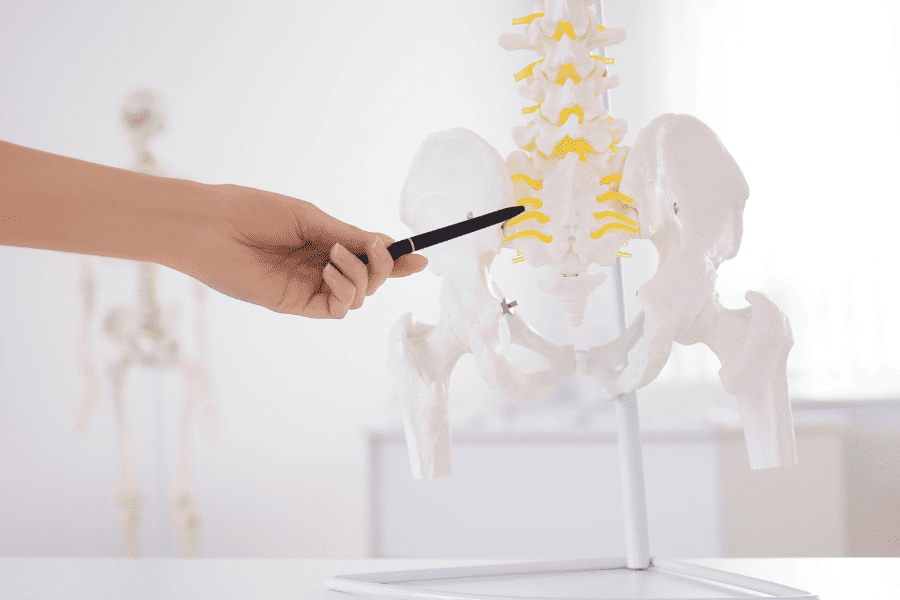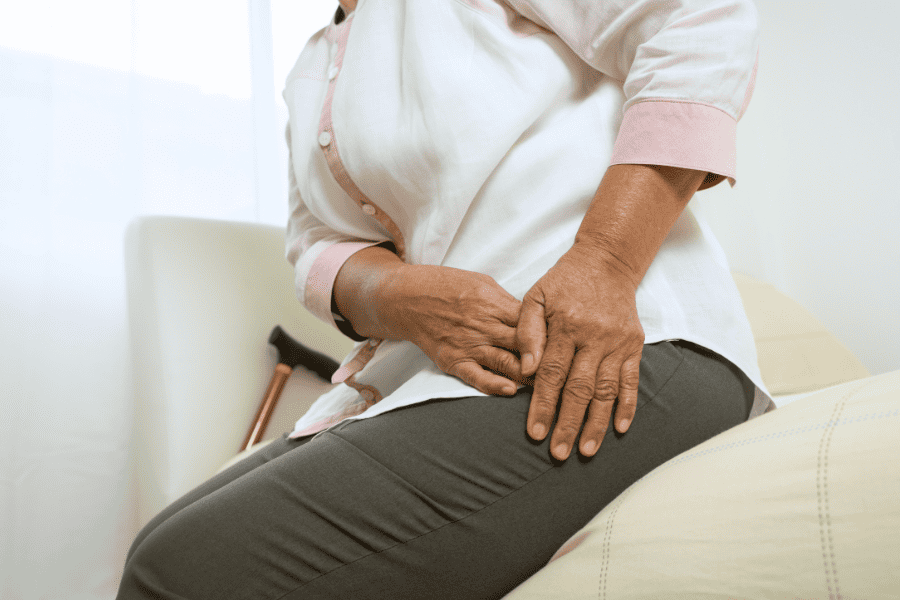 Have you ever experienced a sudden, sharp pain in your hip or felt like your hip joint was out of place? You’re not alone. According to the American Academy of Orthopaedic Surgeons, over 95,000 people in the United States suffer from hip dislocations each year.
Have you ever experienced a sudden, sharp pain in your hip or felt like your hip joint was out of place? You’re not alone. According to the American Academy of Orthopaedic Surgeons, over 95,000 people in the United States suffer from hip dislocations each year.
How can you recognize the signs and symptoms? The fastest way to get answers is to talk to a hip surgeon. At the Louisville Hip & Knee Institute, we’re dedicated to providing comprehensive insights into these orthopedic conditions.
In this blog, we’ll delve into the causes, symptoms, diagnosis, treatment options, and preventive measures related to hip subluxation and dislocation.
What is Subluxation and Dislocation of the Hip?
Subluxation and dislocation of the hip are two medical conditions involving the hip joint. In this ball-and-socket joint, the head of the femur (thigh bone) fits into the acetabulum (a cup-shaped socket in the pelvic bone).
These conditions involve the abnormal movement or displacement of the bones within the joint. Take a look at how these conditions develop:
Hip Subluxation:
- Hip subluxation refers to a partial or incomplete displacement of the femoral head (the ball) from its normal position within the acetabulum (the socket).
- It can occur due to trauma, such as a sudden impact or fall, or underlying hip joint laxity, which means the joint is looser than usual.
Hip Dislocation:
- Hip dislocation is a more severe condition where the femoral head ultimately moves out of the acetabulum.
- It is usually a result of a significant traumatic injury, such as a car accident or a high-energy impact.
- Hip dislocations are considered orthopedic emergencies and require immediate medical attention.
What Are the Signs and Symptoms of Subluxation and Dislocation of the Hip?

- Pain: The most common symptom is sharp, severe pain in the hip or groin area.
- Inability to Move: You may find it impossible or extremely painful to move the affected leg.
- Swelling and Bruising: Swelling and bruising around the hip joint can also occur.
- Numbness or Tingling: Some people experience numbness or tingling in the leg due to nerve compression.
Can You Walk with a Dislocated Hip?
Despite the pain, some individuals may attempt to walk with a subluxated or dislocated hip. It is not recommended, as it can worsen the injury and lead to further complications. It would be wise to seek immediate medical attention if you suspect hip subluxation or dislocation.
Diagnosis of Hip Subluxation and Dislocation
Diagnosing hip subluxation and dislocation involves a physical examination, medical history review, and imaging tests such as X-rays or MRI scans. These tests help the healthcare provider determine the extent of the injury and plan appropriate treatment.
How is a Dislocated Hip Treated?

- Closed Reduction: This non-surgical procedure manually manipulates the hip joint back into its socket.
- Surgery: Severe dislocations may require surgery to repair damaged tissues, such as ligaments or labrum.
- Physical Therapy: Rehabilitation exercises can help strengthen the hip and improve the range of motion.
- Pain Management: Medications may be prescribed to manage pain and inflammation.
How to Prevent a Dislocated Hip
While accidents and traumatic events can lead to hip subluxation and dislocation, there are steps you can take to reduce your risk:
- Exercise Regularly: Maintain strong hip muscles and joint stability through targeted exercise.
- Use Protective Gear: If you engage in contact sports or activities with a risk of falls, wear appropriate protective gear.
- Fall Prevention: Be cautious to prevent falls, especially in older adults, as falls are a common cause of hip injuries.
- Follow Safety Guidelines: In your activities and sports, follow safety guidelines and protocols.
Frequently Asked Questions About Dislocated Hips
Can hip subluxation and dislocation occur without trauma or injury?
While trauma is a common cause of hip subluxation and dislocation, it can also occur due to congenital factors, joint hypermobility, or underlying medical conditions. It’s important to consult a healthcare professional to determine the underlying cause.
Are there any exercises that can help strengthen the hip joint?
What is the typical recovery time after hip surgery for subluxation or dislocation?
Recovery time varies depending on the type of surgery and the patient’s individual circumstances. It can range from several weeks to months. Your orthopedic surgeon will provide you with a personalized recovery plan.
Is there a link between hip subluxation and arthritis?
Hip subluxation and dislocation can lead to joint damage, which may increase the risk of developing arthritis in the affected hip over time. Early diagnosis and appropriate treatment can help mitigate this risk.
Your Next Move: Pain-Free Hips
Hip subluxation and dislocation are painful conditions that can significantly impact your quality of life. If you or a loved one experience hip pain or suspect a hip injury, don’t hesitate to make an appointment with us at the Louisville Hip & Knee Institute. Our orthopedic specialists are dedicated to helping you regain mobility and live a pain-free life.

